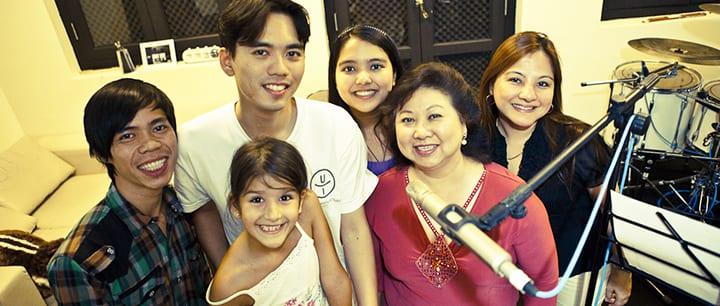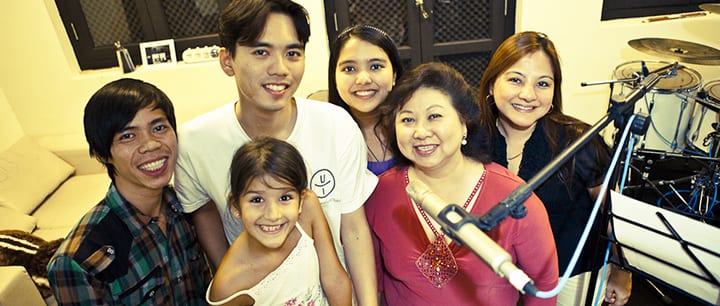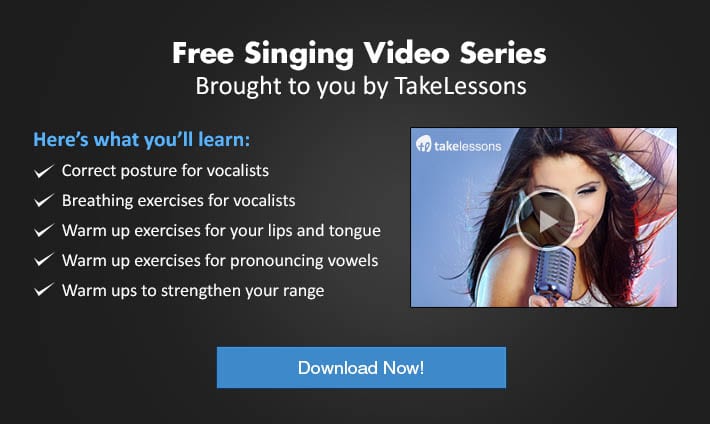Want to learn how to sing? Selecting a great voice teacher to take lessons with is your first step! Read on as Chicago and online teacher Ian H. shares his advice for finding the perfect teacher for you…
Finding a teacher whose philosophy fits your learning style is a huge challenge for both student and teacher. It can translate to a great deal of success or stagnancy for young artists developing their voices. Your pace of learning, entering ability, and choice of musical repertoire should all play into how you choose a teacher, though at the forefront of the criteria should be a healthy approach.
With this kind of healthy foundation, your teacher is better able to:
- Challenge you appropriately for your age, ability, and development
- Offer support tailored to your specific needs
- Structure a plan for you and your voice
- Instill correct technique within each lesson
Keep in mind: healthy singing lends itself to all styles, whereas style does not necessarilyalways lend itself to healthy singing. A singer of any genre is capable of hurting their instrument, though with a healthy approach, artistic and stylistic choices can be made more effectively and bolster your stamina.
So, how can you use this information to make sure you’re working with the right instructor? Always keep in mind that your teacher should:
- Challenge you without hurting you
Arts education and musical training have been a huge part of my life ever since I was a very young student. Right as I began to mature vocally, at the age of 18 years old, I grew an inconveniently placed abscess in my tonsil and throat due to a strep infection. This left me tender, scarred, and with a whole new mechanism to learn and sing with. In the very early days of my college years this caused quite a bit of grief in my vocal production, but what absolutely saved me were my private teachers who kept me in a healthy and productive place.
- Continually focus on your vocal health
It has taken me years to understand vocal technique, because it takes years to study, learn, and master it. My injury aside, what kept me healthy and capable as a young singer were my teachers and professors devoted to offering me good solid technical foundations to avoid injuries, such as vocal nodules and hemorrhaging. Considering my injury it was extra important that I focus on healthy singing, so as not to burn myself out with bad habits and injury.
- Structure a plan for you to follow
I felt stifled in my repertoire choices because of what happened with my injury; I wanted to be challenged with operatic arias, interesting song cycles, music far too large for my vocal ability. But had I been given what I wanted, my poor little vocal folds and over-taxed soft palette would have been fried to nothing. Instead, my teachers focused on music with a limited range to help me build stamina, explore the breaks of my voice, and find my breath. We worked to reestablish my understanding of my instrument. I was not the most receptive student to this ‘slow’ and reparative approach, thus slowing my progress down tremendously. Being a brash young man and wanting challenge clouded my judgment, and I failed to see the challenge of building my own instrument. This applies to any style of singing the artist performs; there needs to be an approach from a healthy place.
- Show you how to get the most out of your voice lessons
Finding singing teachers and coaches that truly support your progress and vocal ability is vitally important. Those who go into the field of teaching are people who desire to educate people in their chosen craft, they want to do well for their students. Though, not every teacher is a fit for a you. Listening to your body’s defense signals and finding a teacher whose language corresponds with that body language provides and safe and productive environment to learn and grow. Educating yourself is important, practice is important, but more important is you and your teacher knowing your limits and how to push them.
In the early stages of vocal study, looking at technique and health will only inform the art to come. Don’t allow the stars in your eyes to blind you from your future. If you want to sing Jazz but your teacher is giving you simple folk songs, ask him or her what the lesson is. Learning line, breath, and control. Finding color, phrasing, and stamina. Work on yourself so that as you find your style and voice you can continue singing for years to follow.
 Ian H. teaches singing, acting, piano, and more in Chicago, IL, as well as through online lessons. He has a comprehensive knowledge of classical repertoire, as well as experience in Jazz Standards and Golden Age Broadway tunes. Learn more about Ian here!
Ian H. teaches singing, acting, piano, and more in Chicago, IL, as well as through online lessons. He has a comprehensive knowledge of classical repertoire, as well as experience in Jazz Standards and Golden Age Broadway tunes. Learn more about Ian here!
Photo by Kevin Lee
Suzy S.


